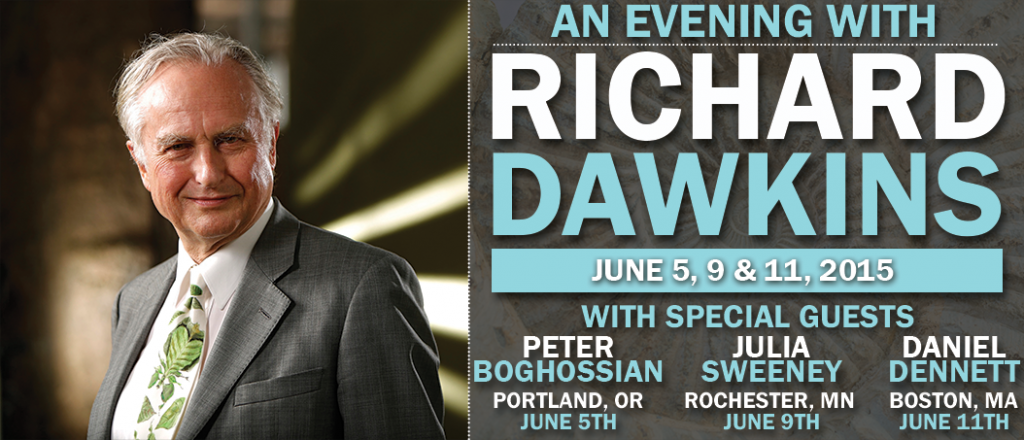 [This is a repost of a piece I did several years ago, slightly edited for 2015. This essay is also part of the conceptual force driving my thoughts on the need for Beta Culture.]
[This is a repost of a piece I did several years ago, slightly edited for 2015. This essay is also part of the conceptual force driving my thoughts on the need for Beta Culture.]
Leaf One
Con games and sleight-of-hand magic work because, one, we humans only have so much attention to spare at any one moment, and two, they direct that attention deliberately in one direction. If you look at where the finger points, you miss … well, everything else.
Like the movie teen backing through a darkened doorway in the serial killer’s lair, we focus intently on one thing while something more important takes place just outside the sphere of our focus.
I’ll give you a real-life example that has bugged me for a long time.
I met Timothy Treadwell some years back in Flagstaff, when he came to give a talk about grizzlies. Tim’s the guy who got killed and partially eaten by a bear in 2003 in Alaska, and was immortalized in the 2005 film “Grizzly Man” a “documentary” by filmmaker Werner Herzog.
I hated the film (and I think Herzog is a pandering jackass for making it as he did) because it projected exactly two messages into the minds of viewers: 1) Tim Treadwell was crazy. 2) Grizzlies are deadly killers.
The finger pointed in those directions, and most of the viewers looked that way. Treadwell was in fact killed by a grizzly. But off-screen, what the finger didn’t point at, and what most of us failed to notice, was that he lived within spitting distance of these huge bears for 12 summers.
Unprotected.
Unarmed.
Unhurt.
Out of all the things we might want to know about grizzlies, we already know “Any sane person knows them goldurned bears’ll kill yuh!” What we don’t know is “There’s a way to live right in among grizzlies for 12 years without getting hurt.”
I can tell you in one second which of those things I’d like to see in a film, which of those things I’d like to KNOW. Herzog, sleight-of-hand documentarian, wasn’t interested in it. Today we have one more titillating, somewhat stupid film pointing a finger at something we already “know,” and most of us still view bears as unpredictable, inevitable killing machines.
So here we are on Earth Day 2015, equally awash in sleight-of-hand: Oh my gosh, are we ever jumping on the “green” bandwagon. You can’t watch TV for half an hour without seeing five commercials about companies going green. Corporations are going green, politicians are going green, builders are going green, banks are going green, cities are going green, for all I know states are going green. Green green GREEN — Yowzah!!
TV, billboards, radio messages, magazine ads, newspaper stories, websites — everywhere you look, clean, well-fed mommies and daddies and happy children are pitching in to cut water consumption! Save energy! Produce less trash! Reduce, reuse, recycle!
Man, I already feel better about it, don’t you? We’re DOING SOMETHING, at last, to Save the Earth. Let’s all heave a deep sigh of relief. Yessssss.
Meanwhile, in all those places where the finger doesn’t point …
Leaf Two
Was it just a dozen years or so ago I was writing an article about Baby Six Billion? She was born on or about October 11, 1999. I wrote about the world of progressive scarcity she would be born into, and I wished her well.
But we’re already living in the world with Baby Seven Billion, who arrived on Earth — as estimated, anyway — on October 31, 2011.
Halloween was the SECOND scariest event on that date. Even though you’d expect Baby Seven Billion to be a daughter or granddaughter of Baby Six Billion, she’s not. (Unless Baby Six Billion got pregnant at the age of 12, that is.)
Instead, Baby Seven Billion was born, give or take a few years, to the same generation that produced Baby Six Billion. The SAME generation.
Jeezus holy jacked-up shit.
Knowing that, I have to ask: What exactly is the point of going green?
I mean, if you and I conserve and recycle and stop eating endangered fish and refuse to support companies that log the Amazon, and do everything we can possibly do to keep the Earth green and growing …
And we each of us cut in half our annual environmental footprint on the Earth …
Where’s the net gain if, during that same period, our neighbors produce more than 205,000 more kids EVERY DAY?
That’s 75 million a year, in case you wondered — roughly equal to the combined populations of Wisconsin, Minnesota, Colorado, Alabama, South Carolina, Louisiana, Kentucky, Oregon, Oklahoma, Connecticut, Iowa, Mississippi, Arkansas, Kansas, Utah,Nevada, New Mexico, West Virginia, Nebraska, Idaho, Hawaii, Maine, New Hampshire, Rhode Island, Montana, Delaware, South Dakota, Alaska, North Dakota, Vermont and Wyoming.
Or more than the individual populations of Turkey, Thailand, France, United Kingdom, Italy or South Africa.
Or, if you prefer, more than twice the population of Canada. Each and every YEAR.
Oh, and by the way, prepare to greet Baby Eight Billion in NINE YEARS.
Your piddly-ass half-person conservation effort vanishes in the noise.
Leaf Three
I saw a beautifully designed book on the environment a few years back, a thick, well-researched tome about all the possible things you can do to Save the Earth. (Wish I could remember the name, but I seem to have put it out of my mind.) I was so excited, I ordered it immediately. And man, when it came, I unwrapped it lovingly, admiring its heft, its colors, its stunning cardboard slip cover. I dove into it with excitement — it was like a whole weighty library of greenitude.
But I made the mistake, within an hour of getting it, of delving into the index for articles on population control.
Nothing.
Huh? I couldn’t believe it. I tried different words, different combinations. In the end, I discovered the entire book seemed to contain only two PHRASES related to the subject. I mean, there weren’t three whole sentences about it. Amid stories of fish farming and water conservation and energy from wind and sun and recycling plastic and improved strains of rice, there was virtually nothing about human numbers.
It was like going through a million-word book of instructions on how to save a sinking ship, reading a thousand different formulations of “Bail faster and better,” but finding no mention at all of “Hey, stupid, plug the fucking hole in the hull!”
I instantly lost interest in the damned thing. I mailed it to a friend who’s into green stuff, and have since then entertained several brief imaginings of punching the authors in the face if I ever get to meet them.
But … can I really blame them? I haven’t had the chance to read every book ever written on saving the earth, but I’ve found few recent ones that deal with population as the real core of the problem.
Is the subject taboo? Is it simple despair that puts it off-limits?
Maybe it’s the inevitable over-reaction. The instant you start talking about encouraging people to use condoms and contraceptives, to pursue various avenues of family planning, etc., to limit human population, the shriekers slam down on you like a rain of neutron bombs — blam, blam blam! “You want to murder babies!! You want to commit genocide!! Oh my God, why do you hate human beings so much!!?”
Whew.
Leaf Four
I had a cowboy friend, Tom Wood, who was an eternal optimist. I noticed the day I met him that he had this small purpley bump on the side of his face, and I asked him about it not long after, when we’d had a chance to get to know each other.
“Ah. That ain’t nothing.” Big smile, dismissive gesture with can of beer. “Been there for years! You gotta go sometime!”
Two years later, the purpley bump was bigger, but the gesture and optimistic dismissal was the same. Every time the subject came up: “Hey, you gotta go sometime!”
Except for the day he found out he had malignant melanoma, and the three or four months he lasted after.
Turns out optimism, like anything, is misusable. If you have a problem, but you refuse to grapple with it because you’d rather be optimistic and hopeful about the future … well, there are side effects.
To get well, you first have to admit you’re sick. To climb out of a financial hole, you first have to admit you’re not handling your money well. To stanch the bleeding of a gaping wound, you first have to notice the gushing blood.
Sometimes, for a while, optimism has to slide over into the passenger seat, keep its smirking mouth shut, and let pessimism take the wheel.
In the midst of an emergency, in the face of a deadly threat, you have to think more about the worst that can happen, rather than the best.
The population of Planet Earth has yet to realize this.
Leaf Five
I’ve had people tell me I shouldn’t use the word “retarded.” And I get the point — it can be an insult to people with mental handicaps.
But like the shock value of carefully-applied profanity, it can also serve to slap people awake.
Here’s retarded: The smug idiot who laughs “Hey, we can’t hurt the Earth! Ha-ha! It’ll be here and fine long after we’re gone!”
Here’s retarded: “Even IF we were capable of wrecking the environment, God could fix it with a wave of his hand.”
Here’s retarded: Buying into all those corporate messages that if we recycle and reuse (with their corporate help, of course), everything will be just fine.
Here’s retarded: Every environmentalist and green advocate who ever lived who failed to recognize that the foundation of EVERY environmental problem is too many people.
Here’s retarded: The guy who repeats the vague reassurance that “Educated women tend to have fewer children. All we have to do is raise the level of education and social welfare in the world, and world population will level off at some sustainable level.”
Problem is, we’re out of time on hopeful reassurances. The planet is already over the load limit on humans — there’s nothing left, no excess capacity to hold us until that optimistically hoped-for population leveling begins to kick in.
If ever there was a moment to be pessimistic, to attempt to be thoughtful and worried and to imagine the worst, this would be that moment.
We’re killing the Earth NOW.
Leaf Six
I don’t see it getting better in my lifetime.
Don’t think I don’t hate to say it.
I hate to even think it. Hey, I’ve been a fan of science fiction since I was about 11 years old and first read Zip-Zip Goes to Venus.
As an SF fan, I’m a devoted futurist. For years I thought about the possibility of cloning my dog, the Best Dog I Ever Even Met, but I held off on doing anything about it. Then one day he got sick, and it hit me that I could either 1) read about all the possible technological innovations but do nothing to make ready for them, or 2) I could live and act as if these imagined futures would be real.
I picked the second option. The future is a real place, a real time, and many things will become possible. I set the wheels in motion for collecting tissue samples when Tito died. Today those samples are frozen in liquid nitrogen, providing me a doorway into one of those possible futures. When (if) cloning gets to be reliable and cheap, I’ll be ready to have them build a puppy for me, the latter-day twin of the Best Dog I Ever Even Met.
But futurist or not, no matter how much technological progress we make — on gene-engineered crops, fish farming, pollution-free energy — none of that can fix the hole in the boat, the hole of more and more people, more and more mouths, arriving daily like unstoppable civilization-smashing dreadnoughts of unthinking hunger.
Leaf Seven
The truth is — brace yourself for some carefully-applied profanity —
We’re fucked.
Seriously. We’re raping ourselves to death with our own appetites. We are bent over, grabbing our metaphorical ankles, while a dick the size of Montgomery, Alabama — population 205,764 — rams repeatedly, daily, up our collective butts.
And it looks like we don’t have the brains to stop it.
For instance: Even the idea of conservation has enemies. And not quiet enemies, but active, loud, wealthy enemies. Enemies with TV and radio shows. Enemies with audiences of admiring millions. Enemies with the backing of huge, globe-spanning churches. Save the environment? Do something about global warming? It’s un-American, it’s crazy, it’s EVILLLL!!
But even those who aren’t active enemies of possible solutions are still thinking we can do pretty much all the same stuff we’ve always done. Everybody can drive cars and live in big houses, and buy everything we buy wrapped in a disposable plastic sheath, and have two or three or four kids. As long as we all pitch in and conscientiously — voluntarily! — conserve, everything will be fine.
Even those of us who are active champions of the environment, as long as we fail to bring the subject of human population into every single discussion, are little more than enablers, co-dependents who help wreck things by failing to admit the real problem.
Taken together, we’re the battered wife who won’t admit she needs help. “I know he loves me. He only does it when he’s drinking.” Wham! “It’s all my fault. I shouldn’t provoke him.” Wham! “He doesn’t really mean to do it. I just can’t leave him.” Wham! Wham!
Out here in the real world, we’re already dying. We’re already killing everything else we care about. It’s just that it’s been happening in slo-mo.
Like the stupid pigeon that stands still while the cat sneaks up on him in broad daylight — “Yeah it DOES look like a great big predator, but hey, it’s barely moving, and nothing bad’s happened SO far, right?” — we’ve sat mired in calm complacency in the midst of a slow motion crash.
But things are speeding up.
The Earth is bleeding to death under us, faster and faster, and the best we’ve managed so far is a string of very small Band-Aids.
When the real way to stop the blood loss, the only workable treatment, is the tourniquet of Everybody Stop Having Children. For a while, anyway.
Leaf Eight
Nothing I’ve said here is meant to imply that I have absolutely no hope. Even the statement “we’re fucked” is not something I feel in any final way.
But I’m not optimistic. The only hope I DO see is if we admit the problem, the real problem, and deal with that. Plug the hole in the hull first.
Stop human population growth. Now. Reverse it. Get our numbers down to four billion, two billion, whatever number really IS sustainable in the real world.
Because this is it, kids. The photo finish where humanity as a group crosses the line a split-second ahead of Mr. Death and lives as the better selves we could be, the ones who become rational adults and enter the next Age of life on earth.
Or the photo finish where Mr. Death beats us across, and stands mocking as we murder each other attempting to claw our individual selves out of the sucking pit of our own sewage and malignant runaway growth … and kill everything else we care about — all the whales and wolves, the polar bears and eagles, and even the cats and dogs and horses — along the way.
There is a possible future, maybe even a probable future, where quite a lot of us will live to see the squalid, dehumanizing background-world of Blade Runner, or Mad Max, or Idiocracy, as the depiction of an enviable Golden Age.
(Just FYI, all you uber-rich people thinking you might survive inside some kind of walled compound, I’d bet real money that the zombie hordes will be eating you FIRST. After all, you’re the fat, juicy ones. Besides, do you really want to live in a world without toilet paper? Without coffee? Without chocolate? )
You, or your kids if you have any, will face this fact: A decidedly unpretty future of death, death and more death is coming soon to a planet near you.
Leaf Nine
And now — deep sigh — cue the shriekers. I obviously want to murder babies, and commit genocide on poor people, right? I’m crazy, I have no proof for my silly dark fantasies and I should probably just shut up — Why do you hate people so much, Mr. Gloomy? — and try not to kill other people’s optimism.
Anyway, things aren’t really that bad, and Science Will Find A Way. Like, you know, mining asteroids and colonizing the Moon, sending our surplus population into space. Stuff like that.
Besides, somewhere out there somebody smarter and better informed than you and I has the problem in hand and will fix things up.
After all, those wise strangers, wherever they are, whoever they are — you know, like government people and corporations and such — care SO MUCH about you and I and our families, right?
Right?
Right.
 Owing to … well, owing, I don’t often get to attend the big atheist events. But this time there’s one near me, so I’m going to see and hear Richard Dawkins in Boston this Thursday, June 11.
Owing to … well, owing, I don’t often get to attend the big atheist events. But this time there’s one near me, so I’m going to see and hear Richard Dawkins in Boston this Thursday, June 11.






